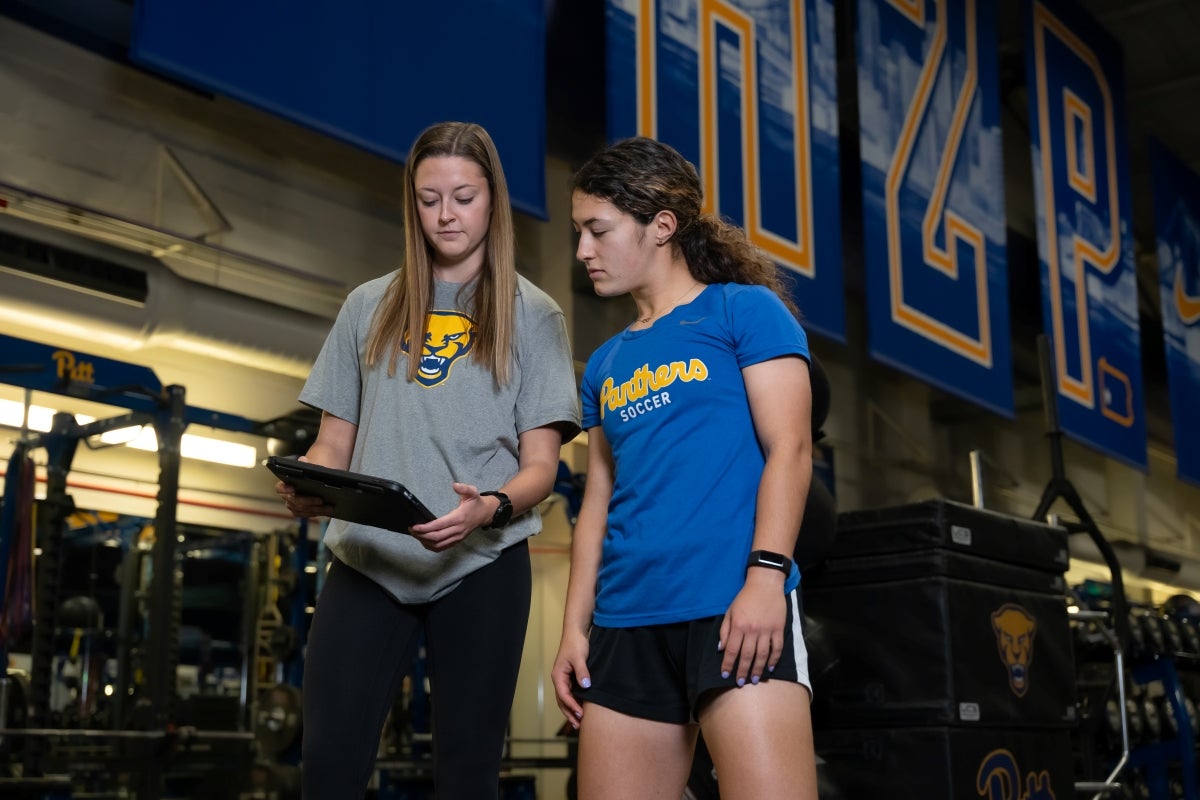A common question often asked by prospective students and others interested in the University of Pittsburgh Master of Sports Science program is:
“What types of jobs or areas can you work in with a degree in sports science?”
This is a great question and really depends on the interests and backgrounds of students graduating from the program as to which professional paths they would like to take. In general, there are five main areas in the field of sports science where someone could work: research, organized elite sports, the private sector, industry and licensed professional advancement.
Research
Many universities and military branches have sports science and exercise physiology research lines. This field is great for students looking to earn a terminal degree (PhD) or those that enjoy the basic science and more controlled settings of sports science. While many research entities also focus on the applied side of sports science, the primary emphasis to disseminate scientific knowledge still remains.
Organized Elite Sports
Including college athletic programs and professional teams like the NFL, NBA, MLB, NHL and MLS. These positions range from strength and conditioning coaches to dedicated sports science and/or data analytics roles. These jobs are great for individuals that have a passion for coaching and the applied side of sports science in a fast-paced competitive environment. Many professional organizations also have dedicated sports science analytics teams that work together with scouting, coaching, sports medicine and business/front office departments. In this setting the focus is first on athletic performance and development with scientific dissemination taking a back seat.
Private Sector
There are many privately owned training centers, gyms and academies where sports scientists work. The populations training at these facilities can span from youth sports and weekend warriors to elite athletes. Private practice and consulting positions could also be included in this category as well. Sports scientists in private practice and smaller training centers wear multiple hats, making it a great fit for people who don’t mind being a “jack of all trades.” In more established training centers and academies, sports science roles can be very similar to those seen in organized elite sports. Examples of some of the larger training centers include IMG Academy, EXOS, Spire Institute, Michael Johnson Performance, Parisi and Bommarito.
Industry
This area is composed of the companies developing and distributing sports science products and technology. This is an easy fit for sports scientists with a previous background in engineering or business, but the possibilities in this rapidly growing space are vast. Many sports tech companies hire sports scientists to help teams learn how to use and analyze the data collected from their products. Other roles could also include sales and product research/development. Some examples of companies in this space include Catapult Sport, Hawkin Dynamics, Kinduct and Whoop, just to name a few.
Licensed Professional Advancement
This area is reserved for previously (or future) licensed professionals like athletic trainers, registered dietitians, physical therapists and sports psychologists. These professionals typically continue to practice within their respective fields but carry the “dual threat” of also having experience in sports science. This helps distinguish them from the candidate pool when applying for positions and provides a great background for individuals seeking a director or high-performance manager. In addition, with athletic training and dietitians being required to have a master’s degree to become credentialed, a Master of Science in Sports Science is a great way to advance your education in a related field of study.
